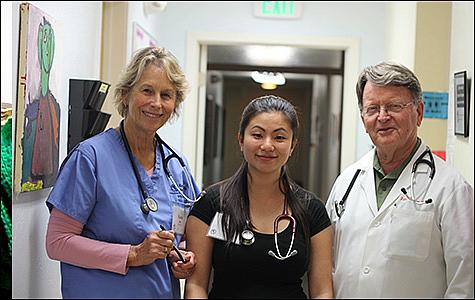Reporter seeks the right angle on Obamacare and immigrants

Sometimes stories fall in your lap. Other times, as an enterprise reporter, you have a hunch that a particular topic is going to garner interesting stories, but it’s all a bit vague in the beginning. You may not yet have the right angle, information or even sources.
When I first applied to the 2014 California Health Journalism Fellowship, I knew I wanted to do a story about immigrants and health care. I’ve reported in immigrant communities, particularly Asian communities, for more than a decade. And I’ve found health care and health issues are always top priorities.
For the fellowship, I proposed a piece on language access and the Affordable Care Act — I wanted to find out how immigrants with limited English skills, who make up to about 40 percent of the California population eligible to receive ACA subsidies, would experience enrollment in this new program.
One of the biggest challenges was that I was reporting on something very broad. I had to be open to changing the angle, depending on what was actually happening. Also, reporting on something as big as an overhaul of the U.S. health care system was challenging, because I was asking for people’s time. Many potential sources were extremely busy during open enrollment, including the people at Covered California, as well as workers helping people sign up. I was asking for data and information from Covered California that had not yet been shared, analyzed, and in some cases, data that wasn’t being collected, because it was all still unfolding.
My first story – “Health Care for All?” – came about because a local clinic had reached out to the paper. Despite the ACA’s reforms, many of those going to the clinic were likely undocumented, and still needing health care. Meanwhile, the California legislature was considering a bill that would expand Covered California and Medi-Cal to undocumented immigrants, who are disqualified from health benefits under the ACA. This became one of the stories in my project.
As I interviewed people – primarily Asian, Latino and African immigrants – about their experiences signing up for health care, I kept thinking I was going to write a long cover story, as I had originally proposed. When I turned in a draft, my editor at the East Bay Express told me it was written like a policy piece and not for a broad audience.
After reporting on this subject for months, I had become too immersed in it. I hid the fact that I didn’t have a great angle by throwing in lots of facts, quotes and section headings, none of which was cohesive. My editor suggested I focus on what seemed the most salient angle: Latinos were afraid of signing up for health insurance for fear of outing their family members as undocumented.
So I went back, zeroed in on this angle, and fixed the piece. It didn’t up being a long cover story but rather a compact news story that focused on a single facet of reform.
Lagging Latino enrollment had been a big issue during the first year of enrollment. I avoided that story for several reasons – many reporters had already written about it, it wasn’t the story I originally pitched, and because I am Asian American and felt hesitant about writing solely about the very diverse Latino community as a single entity.
With deadline looming, I had to figure it out. One of the challenges was interviewing Spanish-speaking folks. I enlisted the help of a professional interpreter and former Associated Press reporter, Anabelle Garay, to conduct some interviews in Spanish. She also looked at several drafts of the piece, including how I interpreted what certain translations meant. This was particularly helpful, since I had doubts about reporting on a community that I wasn’t very familiar with.
My final project story, “Obamacare and Immigration,” ended up running as a news piece in the East Bay Express. The Sacramento News & Review weekly paper also ran an edited version and it was also republished at the Voice of OC.
As this year’s open enrollment proceeds, it will be interesting to see what’s changed, or what hasn’t changed, since last year. Recently, Covered California has been running commercials that address this very issue, telling potential enrollees that information on a health care application is kept private. Representatives from the Department of Homeland Security have also made reassurances to immigrant populations.
With my experience in mind, here are a few tips for anyone working on a project that isn’t shaping up to be quite the story you were hoping for:
- Talk to other reporters and editors about the story and what you’re reporting. A good angle will likely emerge from such discussions of your reporting.
- Check in with your editor before you write a bad draft. A good editor can help you find the right angle and avoid extra work.
- Enlist the help of a trusted interpreter or reporter who speaks a second language, if you are reporting in a community that you’re not familiar with.
- Do not get tied down to your original proposal if it’s not working.
- Step outside of what you’ve been reporting. Write with fresh eyes. Do not write like you are doing a research paper.
Finally, take time to reflect on what you’ve learned, which is likely a lot, even if you’re not aware of it. I know I have. I went into this fellowship hoping to gain more experience, and confidence in reporting on health issues. As a result, I have started writing a lot more on health care. I’m working on a magazine story for Hyphen magazine on young Asian Americans and e-cigarettes. I’m also working on a documentary about Asian Americans and health care. I know these projects were only possible because of the reporting made possible by the fellowship.
Photo via Momo Chang.

